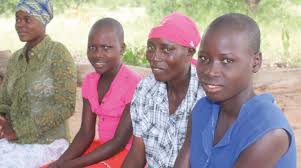|
Getting your Trinity Audio player ready…
|
… as SAGE provides a lifeline for young girls and women
Writes Tafadzwa Muranganwa
An initiative dubbed SAGE (Supporting Adolescent Girls’ Education) has brought alive the debate of revisiting the country’s non-formal education (NFE) model.
This was the general consensus during the SAGE end-line evaluation findings dissemination workshop on Monday.
According to the recommendations in the final report of the SAGE programme, for non-formal education (NFE) to be effective there, is a need to reach out to a wider network of stakeholders.
“One mechanism for enabling the wider roll-out of a community-based learning model is to engage local primary schools, together with the community and religious leaders and local government, to ‘adopt’ one or more nearby hubs to oversee their functioning and delivery of NFE and learning programming, including the possibility for skilling initiatives,” cites the report.
It further says the programme demonstrated cost-effective mechanisms for non-formal education.
” SAGE has successfully demonstrated this model by linking hubs with local primary schools, developing operational and maintenance standards for hubs, ongoing identification, training, and capacity building of local Community Educators, conducting community-led learning assessments, and monitoring the quality of systems, services, facilities and individuals involved in the delivery.
“This is a robust, locally owned, managed, cost-effective approach to maintaining and expanding a community-based learning model across the country while securing value for money regarding the human, physical and financial resources associated with establishing and running NFE programmes in Zimbabwe,” adds the report.
The £11.9 million programme is funded by the Foreign Commonwealth and Development Office’s (FCDO) Girls Education Challenge (GEC) through its Leave No Girls Behind funding window.
Initiated in August 2018, the programme was implemented by Plan International Zimbabwe, the Zimbabwe Open University, the Christian Blind Mission (CBM), the Apostolic Women’s Empowerment Trust, Econet and the Ministry of Primary and Secondary Education.
The programme ends next month after having supported 13 400 out of school, vulnerable adolescent girls in 11 districts in Zimbabwe ‘to improve their learning outcomes and assist their transition into formal education, vocational training, or employment’.
According to Willard Nengomasha, Education Technical Lead, Plan, rebranding non-formal education is a must.
“We have to rebrand the non-formal education and that includes revisiting the Education Amendment Act. For example, it has a clause that says schools should endeavour to provide non-formal education if resources permit this gives the school heads with a leeway not to offer NFE at their stations,” opined Nengomasha.
Striking was how young girls from apostolic churches and girls with disabilities reported a high transition rate.
“SAGE was successful in supporting the transition of married girls and young mothers (above 90 % transition).
” Apostolic girls (76 %) and girls with disabilities (73%) also reported a high transition rate.”
A beneficiary, Kayla Chiwake who is now a hairdresser, spoke glowingly of the initiative.
“I am grateful that SAGE has been life-changing as it equipped me with skills. I am now a hairdresser enabling me to help out my mom,” she said.
In her keynote address, read on her behalf by the chief director of curriculum development and technical services, Mr Cyprian Masocha, permanent secretary in the ministry of primary and secondary education, Ms Tumisang Thabela lauded SAGE.
” I would therefore like to congratulate the SAGE programme for a sterling job in surpassing its target of supporting out-of-school adolescent girls and young women to be able to demonstrate learning and to transition into education, training and meaningful economic engagement.
“The programme has seen more than 75% of learners recording improved literacy and numeracy scores against a target of 65%. It has also met its target of supporting the transition of 60% of girls into well-defined transition pathways,” she said.
Zimbabwe has been battling the high prevalence of early child marriages that has led to a number of girls dropping out of school.
